Cara Natterson's Blog, page 10
November 20, 2019
The Gift of Tone
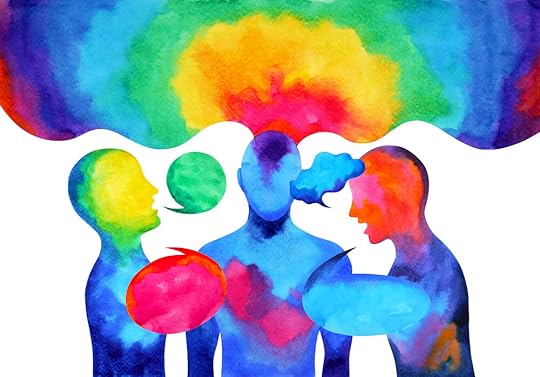
Oftentimes, I feel like we are at odds with one another. Doctors and patients. Parents and kids. Experts and the naïve. In every direction, underlying the dynamic of one person trying to help another there often seems to be a tone of disinterest, disdain, or even distrust—which makes absolutely no sense if the idea is to help each other.
I have always felt this in the world of pediatrics, but maybe that’s because I came of age as a doctor just as Andrew Wakefield and his cult of vaccine skepticism first emerged. When I started out in medical school, I envisioned my role as a doctor going something like this: I work my butt off to learn a bunch of stuff that I can pass along to people who didn’t learn all that stuff so that they could live healthier, safer lives. The way it actually went, from day one working in hospitals and clinics, was this: people were psyched to get my information until it bumped up against something in their world – a belief or an experience – and then suddenly we were on opposite poles and I was unable to effectively share my knowledge without major finesse. READ MORE
November 19, 2019
Outside the Barbie Box
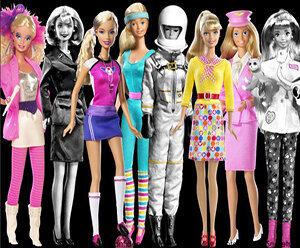
One of the more unanticipated experiences I had this past year: participating in a Barbie think tank. Unanticipatedly moving, unexpectedly bonding, and unquestionably fulfilling.
The Barbie Global Advisory Council is not really a think tank. It’s a collection of 10 people, each dedicated to the health/wellness/happiness of children in unique ways. The group includes athletes, content creators, researchers and educators – an awesome collection to be part of and a group that really made me think.
For many years, I have worked with Mattel, the company behind Barbie since her creation 60 years ago, albeit indirectly. You see, Mattel is the parent company of American Girl. And American Girl publishes my Care and Keeping and Guy Stuff titles. But it is only as a member of the Council that I have been privy to Mattel’s deep thinking around youth empowerment through play. READ MORE
Spreading the Barbie Joy

One of the more unanticipated experiences I had this past year: participating in a Barbie think tank. Unanticipatedly moving, unexpectedly bonding, and unquestionably fulfilling.
The Barbie Global Advisory Council is not really a think tank. It’s a collection of 10 people, each dedicated to the health/wellness/happiness of children in unique ways. The group includes athletes, content creators, researchers and educators – an awesome collection to be part of and a group that really made me think.
For many years, I have worked with Mattel, the company behind Barbie since her creation 60 years ago, albeit indirectly. You see, Mattel is the parent company of American Girl. And American Girl publishes my Care and Keeping and Guy Stuff titles. But it is only as a member of the Council that I have been privy to Mattel’s deep thinking around youth empowerment through play. READ MORE
November 18, 2019
Boys & Beards
Sometimes I come across articles that stop me in my tracks. Is this for real? Well apparently yes, beards aren’t just popular – they’ve now become big business. Which means it’s only a matter of time before boys start feeling the pressure of getting to this milestone of puberty.
It’s not that 12-year olds will be running around trying to figure out how to sprout something – anything – across their upper lips and covering their jaws, though as I write this I am flashing back to a moment when, decades ago, I thought there was no possible way 12-year-old boys would ever take muscle-enhancing drugs.. Boy, was I wrong about that one. My point, though, isn’t necessarily what they will do to achieve maturity faster, it’s that we ought to appreciate the physical pressures they feel when it comes to maturation. Girl body image is talked about all the time—so often sometimes it feels trite (it’s not!). Boy body image is missed in equal measure, even though they face the same pressures of physical perfection, just in very different directions.
And so, even though I smiled when I first read this article, it’s as real as any body image ideal that we all acknowledge, from impossibly thin-and-curvy female bodies to wrinkle-less aging skin. So parents, just take note. Our sons feel the weight of physical perfection just like our daughters do, except in a more muscular and yes, now hairier way.
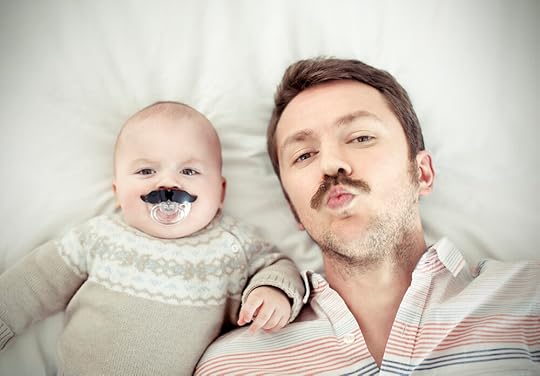
Driving to a wedding, Kurt Maletych panicked. He thought he had left a valuable pen at home. He searched his car and there it was: a Volt Instant Beard Color applicator he uses to fill in a pesky grey patch.With one eye on the road and the other in his rearview mirror, he touched up his beard. “I just did it quick, like bing, bang, bong,” said Mr. Maletych, a 50-year-old from Carlsbad, Calif., who owns car dealerships. “It… READ MORE
November 17, 2019
Transitioning Norms
The gender spectrum has become increasingly mainstream over the past several years, thanks in large part to celebrities, athletes, and other highly visible folks breaking prior molds. Today there are numerous examples of people born with one gender assignment but identifying with another who go on to live full lives, experience great success, and find profound happiness. Not all, though, not by a long shot. And by the way, not all cis-gendered people hit these goals either (again, not by a long shot). But the uphill battle faced by the transgender community can be uniquely daunting.
This week, an important study showed that when kids live true to their gender identity, they experience their identity equally strongly. In case you need a refresher on terminology, cisgender means identifying as the gender that matches the sex assigned at birth; transgender means identifying not as the gender assigned at birth. According to this research, regardless of whether they are cis- or transgender, kids behave and develop socially in the same way. As the lead author put it, “If I saw the data of any random participant, I would not be able to tell if that child is transgender or cisgender, and I think that’s really interesting.” Moreover, the study’s authors concluded that when parents support their child’s gender identity expression, they are not driving a gender choice – in other words, parents don’t impose gender identity and parenting doesn’t make a child transition.
Some downsides to the study: for starters, researchers only looked at kids who had already socially transitioned, so the results cannot be generalized to kids pre-transition. Also, study subjects were disproportionately higher income and their parents tended to be highly educated. These kids presumably have more resources to help them through associated challenges (not to mention the medical costs of transitioning) and parents who are more likely to support the circumstances. As pointed out in the Newsweek piece, some data shows that when transitioning kids are not supported – or even acknowledged – they feel distress and may act out or retreat as a result.
I love this piece by Methods Man F. Perry Wilson, which walks through the details of the study. But if you’d rather read The Newsweek version that’s less science-y, keep reading below.
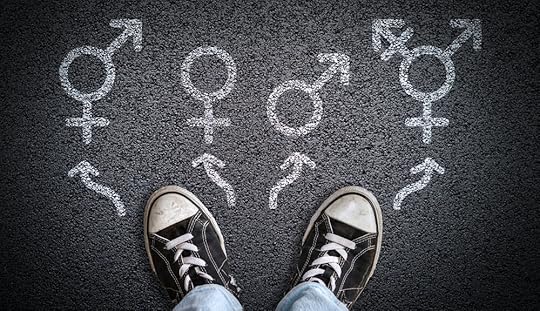
Trans children who live as the gender they identify with act and develop similarly to their cisgender counterparts, according to a new study.In the largest ever study of transgender children, scientists recruited 317 3 to 12-year-old transgender children, 189 of their siblings, and 316 cisgender kids who acted as controls. The transgender participants had… READ MORE
November 16, 2019
Tik Tok Yin Yang
If Instagram became ubiquitous because it was all about likes and being your most perfect self (even if the images are entirely photoshopped or presented as slivers of real life while actually nothing could be further from the truth), Snapchat was the antidote (a picture of the carpet or your knee or a distorted face, quick message scrawled across, often in code). Well now there’s TikTok, a platform born in China in 2016 and massive in the U.S. since 2018 after the parent company acquired musical.ly. TikTok boasts one billion (with a B) monthly active users. It’s huge. And interestingly, it has found life as a kind of mash up of the perfection of Instagram and the I-don’t-care-ness of Snapchat, all with a throwback to the old Vine format of short form video.
This Vox piece provides a great assessment of the bimodality of TikTok, exploring the power of ugly in a world of perfection. The article in a nutshell: Normal kids have created an entire genre of internet comedy devoted to how constantly seeing exceptional talent and beauty go viral makes the rest of us feel like ugly losers. In response, TikTokers have taken a standard, flipped it on its head, and run with it. That’s the microcosm of TikTok, where both the original standard and the new one coexist.
For parents, the yin/yang of the platform throws a curveball, evidenced by these pretty/ugly stories evolving in real time. On the one hand, how wonderful for our kids to reject perfectionism. On the other hand, though, is the self-criticism more real than rebellious? Is this a case of many a true word being said in jest? The “Hi, I’m Ryan” video cited by Vox is a perfect example of how most kids navigate this fine line on TikTok, all the while entertaining others.
In July, Ryan Sterling, a 23-year-old in the Chicago suburbs who has had alopecia since he was in middle school, uploaded a video that begins with a picture of Britney Spears with a shaved head followed by a picture of Mr. Clean, and then himself: “It all started when my mom met my dad, then they fell in love, and they had me. Hi, I’m Ryan,” he says. “And my life? It’s kinda crazy.”
It is funny. And poignant. And understandably viral. Maybe painful. Or self-embracing. Or self-demeaning. But back to also funny.
With a billion users posting every month across the globe, your kid is either putting up content on TikTok or at the very least consuming it from this platform. So just know about it, ask about it, and if you have that kind of relationship with your kid, watch a few of these together. Parenting is a gigantic grey zone where an experience for one child can be empowering while the same experience can decimate another. TikTok is kind of like that too: a giant social world with distinct poles that coexist… sort of.
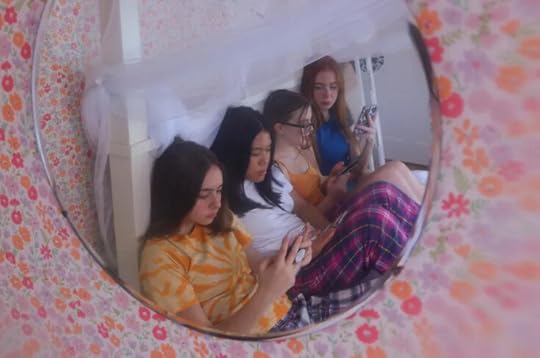
There’s a TikTok that’s just a boy saying, “I may be ugly, but at least I’m also … dumb and annoying.” Then he dances while Ariana Grande’s “Successful” plays. It’s extremely funny, and a little bit sad, and I think about it every day.Kids on TikTok call themselves ugly all the time, most of the time as a joke, but not always, and I’m never sure how I’m supposed to feel about it. “Why do I look like this? What’s the reason?” asked the… READ MORE
The Bimodality of TikTok
If Instagram became ubiquitous because it was all about likes and being your best self (even if the images are entirely photoshopped or presented as slivers of real life while actually nothing could be further from the truth), Snapchat was the antidote (a picture of the carpet or your knee or a distorted face, quick message scrawled across, often in code). Well now there’s TikTok, a platform born in China in 2016 and massive in the U.S. since 2018 after the parent company acquired musical.ly. TikTok boasts one billion (with a B) monthly active users. It’s huge. And interestingly, it has found life as a kind of mash up of the perfection of Instagram and the I-don’t-care-ness of Snapchat, all with a throwback to the old Vine format of short form video.
This Vox piece provides a great assessment of the bimodality of TikTok, exploring the power of ugly in a world of perfection. In a nutshell: Normal kids have created an entire genre of internet comedy devoted to how constantly seeing exceptional talent and beauty go viral makes the rest of us feel like ugly losers. In other words, take a standard, flip it on its head, and run with it. That’s the microcosm of TikTok, where both the original standard and the new one coexist.
As parents, this is a curveball - in general and specific to the pretty/ugly stories evolving in real time. On the one hand, how wonderful for our kids to reject perfectionism. On the other hand, though, is the self-criticism more real than rebellious? Is this a case of many a true word being said in jest? The “Hi, I’m Ryan” video cited by Vox is a perfect example of how most kids navigate this fine line, all the while entertaining others.
In July, Ryan Sterling, a 23-year-old in the Chicago suburbs who has had alopecia since he was in middle school, uploaded a video that begins with a picture of Britney Spears with a shaved head followed by a picture of Mr. Clean, and then himself: “It all started when my mom met my dad, then they fell in love, and they had me. Hi, I’m Ryan,” he says. “And my life? It’s kinda crazy.”
It is funny. And poignant. And understandably viral. Maybe painful. Or self-embracing. Or self-demeaning. But back to also funny.
With a billion users posting every month across the globe, your kid is either putting up content on TikTok or at the very least consuming it from this platform. So just know about it, ask about it, and if you have that kind of relationship with your kid, watch a few of these together. Parenting is a gigantic grey zone where an experience for one child can be empowering while the same experience can decimate another. TikTok is kind of like that too, a giant social world with distinct poles that coexist… sort of.

There’s a TikTok that’s just a boy saying, “I may be ugly, but at least I’m also … dumb and annoying.” Then he dances while Ariana Grande’s “Successful” plays. It’s extremely funny, and a little bit sad, and I think about it every day.Kids on TikTok call themselves ugly all the time, most of the time as a joke, but not always, and I’m never sure how I’m supposed to feel about it. “Why do I look like this? What’s the reason?” asked the… READ MORE
October 23, 2019
How to Parent in an Age of Vaping
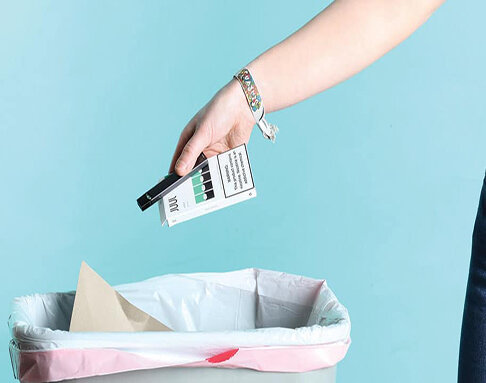
It is no longer enough to understand the rapid rise of e-cigarettes and the current vaping epidemic. What so many parents really want to know is this: what can we do to help our individual kids?
A brief recap, in case you have missed the zillions of articles pinging around (with a couple of updates from my September piece in the topic): in the US...READ MORE
Anxiety vs. Self-Care
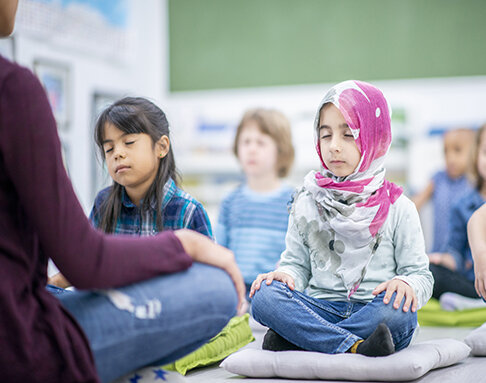
On a quest to support girls and women in all stages of life, from newborn nourishment to post-traumatic survival strategies, Jenny Lorant Grouf has been practicing bodywork for 15 years. The tween and teen demographic has become a particularly sweet spot for Jenny, ever since her own daughter aged in and wanted to take ownership of her…READ MORE
Deep Feelings
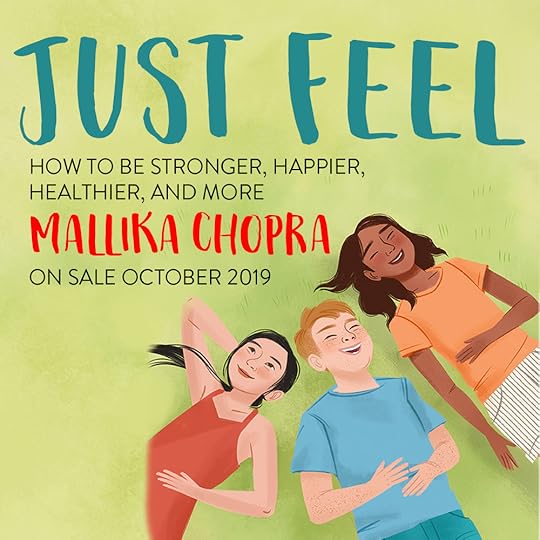
Mom, media entrepreneur, master meditator and mentor. That’s Mallika Chopra. She teaches kids and adults alike not just how to tap into their inner world, but also how to transform intention into living a life of purpose. In the midst of launching her second kids’ book, Just Feel, Mallika took a moment with me to reflect on the importance of emotional connection.
CN: Mallika Chopra, you are one of the deepest souls I know, but at the same time you’re completely…READ MORE



